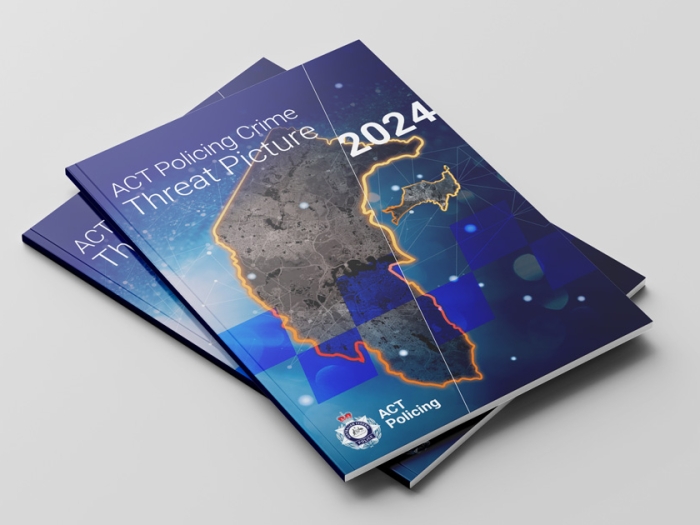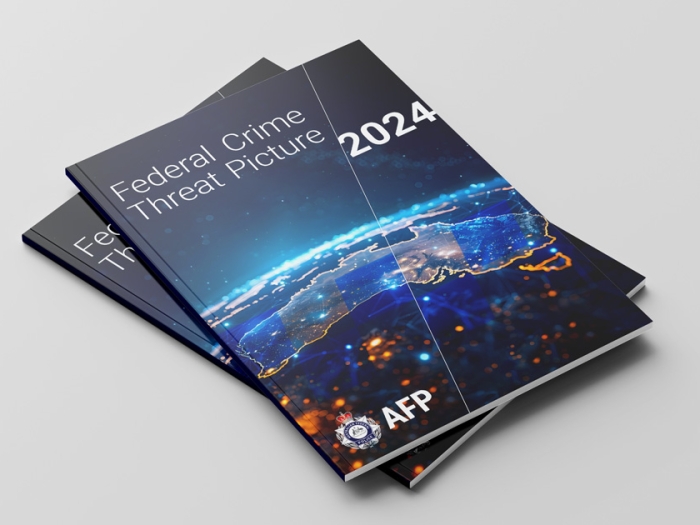Our operating environment
The AFP's operating environment is changing at a rapid pace. Threats continue to emerge in response to global trade, climate change, geopolitical tensions, inequality and political instability. These threats create an environment that enables criminal activity in new and complex ways.
To meet the challenges of our operating environment, the AFP continues to develop and evolve as an innovative and future-focused policing agency. The AFP is committed to meeting the challenges of new technology-enabling crime, such as through the Joint Policing Cybercrime Coordination Centre (JPC3). Innovative responses to priority areas, such as cybercrime, allow the AFP to maximise damage on the criminal environment.
With such a complex operating environment, the AFP values our partner agencies and policing services to accelerate disruptions and operational outcomes. We continue to work with key partners in Australia and overseas, including state and territory police, Commonwealth agencies and the Australian intelligence community.
National and International Policing
Terrorism remains a threat to the safety and security of Australians and our way of life. The AFP is working closely with domestic and foreign law enforcement and intelligence partners to respond to these criminal threats, including undertaking joint operations and sharing of capabilities and intelligence. Protecting the Australian community from these threats, that are increasingly complex and diversified, is a high priority for the AFP. The main terrorism threat is religiously motivated violent extremism, however, ideologically motivated violent extremism is increasing.
Recently there is an increasing number of youth inspired by violent extremist ideologies. The threat is increased through the online environment and availability of terrorist propaganda. The AFP continues to explore opportunities with domestic and international, public and private partners, to strengthen our ability to respond to online threats.
The risk to our community posed by convicted terrorist offenders, and known entities within our community, is complex and continues to grow. The threat posed by foreign terrorist fighters who are offshore but may return to Australia, remains a priority for the AFP.
Espionage and foreign interference (EFI) is a threat to Australia's sovereignty, national security interests and the Australian community. The AFP continues to prioritise EFI investigations as part of the Counter Foreign Interference Taskforce. The AFP responds to hostile state actors seeking to access sensitive government information and target our democratic institutions, strategic sectors and assets. Hostile state actors engage in community interference in an attempt to control diaspora communities and influence the cohesion and wellbeing of our people. The AFP also provides investigative outcomes for other sensitive matters relating to secrecy, harming of Australians offshore and war crimes.
The frequency, complexity and evolving nature of cybercrime continues to have widespread impacts on the Australian community and our national interests. We face evolving and pervasive cybercrime threats that cause severe harm through financial loss, reputation damage and loss of confidence in the digital economy. The AFP is prioritising collaboration with law enforcement, community and industry partners to make Australia a costly and hostile environment for cybercrime. The AFP works with stakeholders to disrupt and prosecute cybercriminals in focus areas such as business email compromise, remote access trojans, and ransomware. We will also engage the community about steps they can take to protect themselves from harm.
Child exploitation and human exploitation are priority areas for the AFP and Australian Government. Technology enables the exploitation of children to occur remotely and across borders, making addressing this issue increasingly difficult. Technology and the reopening of national and international borders also enable, and amplify, human exploitation, including human trafficking, slavery and slavery-like practices. The AFP continues our commitment to combating violence against women and children, and child and human exploitation by working in partnership with a range of national and international stakeholders, as well as state and territory police, industry and non-government agencies. The AFP leads a collaborative national response to counter child exploitation through the Australian Centre to Counter Child Exploitation (ACCCE), as well as implementing 14 measures under the National Strategy to Prevent and Respond to Child Sexual Abuse (2021–2030), and our responsibilities as detailed in the National Action Plan to Combat Modern Slavery (2021–2025).
AFP Operation Ironside demonstrated that the scale, complexity and impact of transnational serious and organised crime (TSOC) on Australia has been underestimated. Australia remains an attractive target for TSOC groups. Australia has one of the highest per capita users of illicit drugs in the world and has some of the highest prices for illicit drugs.
TSOC is well-established, financed and has integrated global networks. Some 70% of Australia's TSOC threats are based offshore or have strong offshore links, but the impacts of TSOC are felt locally. The AFP prevents and disrupts TSOC through their communications, operations and finances using a range of partnerships and leading capabilities, to go beyond traditional investigation techniques. Importantly, we use our international networks to disrupt TSOC threats before they reach Australia.
The Criminal Assets Confiscation Taskforce (CACT) targets the criminal business model and confiscates assets to undermine the profitability of criminal enterprises and prevent the reinvestment of criminal proceeds into further criminal activity. Like the wider AFP, the criminal environment and methodologies confronting the CACT are rapidly evolving, including with respect to the use of cryptocurrencies, and the CACT is continually enhancing its capabilities. Having restrained $592 million (gross) in criminal assets in the past 3 years, the CACT is on track to exceed its 5-year target to restrain $600 million (gross) in criminal assets by 30 June 2024.
The AFP uses a multi-agency approach to strengthen the Commonwealth's ability to address fraud and corruption. Foreign bribery is focused on criminal activity that causes harm to Australia's international reputation and economy. Australia is an attractive investment opportunity for corruption offences in the Asia–Pacific region. Key industry sectors are particularly vulnerable to foreign bribery offences. Fraud and anti-corruption includes organised crime groups engaged in fraud against the Commonwealth, particularly when utilising trusted insiders who divert government revenue from vital programs, utilise proceeds to fund other serious offending, target vulnerable Australians and leverage infiltration and/or manipulation of government systems to facilitate crime.
The AFP has primary law enforcement responsibility for investigating allegations of corrupt conduct by Commonwealth officials (except where the Australian Commission for Law Enforcement Integrity has jurisdiction) and the bribery of foreign public officials by Australian companies.
The AFP is working closely with domestic and foreign international law enforcement, security and intelligence partners to manage and proactively meet these challenges, including undertaking joint operations, capacity development and sharing of capabilities and intelligence.
ACT Policing
ACT Policing faces an operational landscape that is shaped by the growing ACT population, evolving land use development and a more complex criminal and social environment. In order to address this increased complexity and demand, and to further improve community safety, ACT Policing continues its transition to a new Police Services Model. This model includes strengthening both public and private partnerships to lead a multi-disciplinary response to criminal offending.
As part of efforts to prevent crime and victimisation, ACT Policing undertakes proactive strategies. Where possible, ACT Policing seeks to identify opportunities to proactively intervene and work with its partners to address the underlying social issues leading individuals to commit crime. This involves working with government to ensure responses to family and sexual violence remain victim-focused, and proactively develop early intervention strategies to break the cycle of family violence. ACT Policing also seeks to explore ways to improve its engagement with vulnerable people and groups. This includes working with the community to implement the recommendations provided by the ACT and Commonwealth Ombudsman in their report, ACT Policing's administrative framework for engagement with the ACT Aboriginal and Torres Strait Islander community.
Specialist Protective Services and International Policing Missions
The AFP continues to deliver policing services to protect and support Australia's interests domestically and internationally. Specialist Protective Services utilises a flexible and intelligence-driven approach to maintain the safety of individuals, infrastructure and interests deemed at risk by the Commonwealth. This is done through increased investment in people, integration of technology and effective coordination with our domestic and international partners.
The AFP promotes regional stability and continues to uplift the capacity of neighbouring countries through international police development missions. The AFP continues to provide community policing services to the communities of Jervis Bay, Norfolk Island, Cocos (Keeling) Islands and Christmas Island.
Through the National Operations State Service Centre and the National Missing Persons Coordination Centre, the AFP continues to provide 24/7 critical connecting and coordinating services. This fusion of communications, intelligence, coordination and domestic and international engagement assists investigations and operations to keep Australians safe. These entities receive and transmit vital operational information to enable the AFP and its trusted partners to deliver effective policing outcomes throughout
Australia and the world.
Changes to existing protective and international services have strengthened the AFP's ability to protect Australia's domestic and international interests. The AFP continues to enhance the capacity and capability of Pacific police forces through bilateral police development missions and regional mechanisms. The AFP promotes regional stability and security by cooperating and fostering relationships alongside domestic and international counterparts as a partner of choice.
COVID-19
The COVID-19 pandemic continues to impact on the AFP's operating environment and delivery of core services. We continue to investigate fraud arising from economic stimulus measures and exploitation of essential and scarce goods. The opening of borders and easing of quarantine restrictions presents new challenges and opportunities for our operating environment. We will continue to provide an agile and multifaceted response as the aftereffects of the pandemic emerge.





